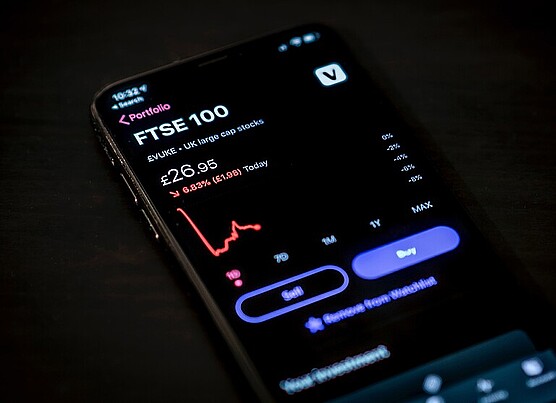Profile
Mathijs A. van Dijk (see personal website for recent working papers, data, etc.) is professor of finance at Rotterdam School of Management, Erasmus University (RSM) and scientific director at pension think tank Netspar. His research focuses on sustainable investments and climate finance. He has published in leading academic journals such as the Journal of Finance, the Review of Financial Studies, the Journal of Financial Economics, Management Science, the Journal of Accounting and Economics, and the Review of Finance. Professor van Dijk has presented his work extensively at international conferences and seminars at academic institutions including, among others, Boston College, Dartmouth, Duke, Harvard, HEC Paris, INSEAD, and UCLA. He is also a frequent speaker at industry events and has written for practitioner-oriented journals such as the Financial Analysts Journal. His work has been covered by, e.g., The Economist, the New York Times, Volkskrant, NRC, VOXEU, the World Bank "All About Finance" blog, the Oxford Business Law Blog, and the Harvard Law School Forum on Corporate Governance and Financial Regulation. Professor van Dijk has been a visiting graduate student at Warwick Business School and Princeton University and a visiting research scholar at the Ohio State University, Duke University, and UCLA. He obtained his MSc in Econometrics (cum laude) from Erasmus University and his PhD in Finance from Maastricht University. In 2008, he received a 600,000 euro Vidi-grant from the Netherlands Organisation for Scientific Research (NWO) for a five-year research program on "Liquidity Black Holes". In 2014, he held his inaugural address as a finance professor (entitled “The Social Value of Finance”).
Publications
Article (30)
Academic (29)
-
Gianfrate, G., Rubin, M., Ruzzi, D., & van Dijk, M. (2024). On the resilience of ESG firms during the COVID-19 crisis: evidence across countries and asset classes. Journal of International Business Studies. Advance online publication. https://doi.org/10.1057/s41267-024-00718-2
-
van Dijk, M., Menkveld, A. J., Dreber, A., Holzmeister, F., Huber, J., Johannesson, M., Kirchler, M., Neususs, S., Razen, M., Wagner, W., Verwijmeren, P., Vogel, S., van der Wel, M., Mazzola, F., Yang, A., & Zhou, C. (2024). Non-Standard Errors*. Journal of Finance. https://doi.org/10.2139/ssrn.3961574
-
Beck, T., Döttling, R., Lambert, T., & van Dijk, M. (2023). Liquidity creation, investment, and growth. Journal of Economic Growth, 28(2), 297-336. https://doi.org/10.1007/s10887-022-09217-1
-
Reinders, H. J., Schoenmaker, D., & van Dijk, M. (2023). A finance approach to climate stress testing. Journal of International Money and Finance, 131, Article 102797. https://doi.org/10.1016/j.jimonfin.2022.102797
-
Rösch, D. M., Subrahmanyam, A., & van Dijk, M. A. (2022). Investor short-termism and real investment. Journal of Financial Markets, 59, Article 100645. https://doi.org/10.1016/j.finmar.2021.100645
-
Bongaerts, D., Roll, R., Rösch, D., van Dijk, M., & Yuferova, D. (2022). How Do Shocks Arise and Spread Across Stock Markets? A Microstructure Perspective: A microstructure perspective. Management Science, 68(4), 2377-3174, iv-v. https://doi.org/10.1287/mnsc.2021.3979
-
Dijk, M., van Dalen, HP., & Hyde, M. (2020). Who Bears the Brunt? The Impact of Banking Crises on Younger and Older Workers. Journal of the Economics of Ageing, 17, Article 100264. https://doi.org/10.1016/j.jeoa.2020.100264
-
Hou, K., & Dijk, M. (2019). Resurrecting the Size Effect: Firm Size, Profitability Shocks, and Expected Stock Returns. The Review of Financial Studies, 32(7), 2850-2889. https://doi.org/10.1093/rfs/hhy104
-
Hanselaar, R., Stulz, RM., & Dijk, M. (2018). Do Firms Issue More Equity When Markets Become More Liquid? Journal of Financial Economics, 133(1), 64-82. https://doi.org/10.1016/j.jfineco.2018.12.004
-
Dreu, CKW., & Dijk, M. (2018). Climatic Shocks Associate with Innovation in Science and Technology. PLoS One (online), 13(1). https://doi.org/10.1371/journal.pone.0190122
-
Rosch, D., Subrahmanyam, A., & van Dijk, M. (2017). The dynamics of market efficiency. The Review of Financial Studies, 30(4), 1151-1187. https://doi.org/10.1093/rfs/hhw085
-
Guenster, A., & van Dijk, M. (2016). The impact of European antitrust policy: Evidence from the stock market. International Review of Law and Economics, 46, 20-33. https://doi.org/10.1016/j.irle.2015.12.001
-
Karolyi, GA., Lee, K.-H., & van Dijk, M. (2012). Understanding Commonality in Liquidity Around the World. Journal of Financial Economics, 105(1), 82-112. https://doi.org/10.1016/j.jfineco.2011.12.008
-
Hou, K., & van Dijk, M. (2012). The Implied Cost of Capital: A New Approach. Journal of Accounting and Economics, 53(3), 504-526. https://doi.org/10.1016/j.jacceco.2011.12.001
-
Nguyen, TT., & van Dijk, M. (2012). Corruption, Growth, and Governance: Private vs. State-owned Firms in Vietnam. Journal of Banking and Finance, 36(11), 2935-2948. https://doi.org/10.1016/j.jbankfin.2012.03.027
-
Koedijk, CG., Tims, B., & van Dijk, M. (2011). Why Panel Tests of Purchasing Power Parity Should Allow for Heterogeneous Mean Reversion. Journal of International Money and Finance, 30(1), 246-267. https://doi.org/10.1016/j.jimonfin.2010.10.004
-
van Dijk, M. (2011). Is Size Dead? A Review of the Size Effect in Equity Returns. Journal of Banking and Finance, 35(12), 3263-3274. https://doi.org/10.1016/j.jbankfin.2011.05.009
-
Moerman, GA., & van Dijk, M. (2010). Inflation Risk and International Asset Returns. Journal of Banking and Finance, 34(4), 840-855. https://doi.org/10.1016/j.jbankfin.2009.09.014
-
de Jong, A., Rosenthal, L., & van Dijk, M. (2009). The risk and return of arbitrage in dual-listed companies. Review of Finance, 13(3), 495-520. https://doi.org/10.1093/rof/rfn031
-
van Dijk, M., & Roosenboom, P. (2009). The market reaction to cross-listings: Does the destination market matter? Journal of Banking and Finance, 33(10), 1898-1908. https://doi.org/10.1016/j.jbankfin.2009.04.010
-
Van Dijk, M. M., Van Dijk, M. A., Wijkstra, H., Laguna, P. M., & De la Rosette, J. J. (2009). The effect of a temporary prostatic stent on sexual function. Central European Journal of Urology, 62(4), 243-248. https://doi.org/10.5173/ceju.2009.04.art6upd
-
Brounen, D., van Dijk, M., & Eichholtz, PMA. (2008). Corporate Real Estate and Corporate Takeovers: International Evidence. Journal of Real Estate Research, 30(3), 293-314. http://hdl.handle.net/1765/16937
-
Koedijk, CG., Lothian, JR., & van Dijk, M. (2006). Foreign Exchange Markets. Journal of International Money and Finance, 25(1), 1-6. https://doi.org/10.1016/j.jimonfin.2005.10.001
-
Koedijk, CG., Tims, B., & van Dijk, M. (2004). Purchasing Power Parity and the Euro Area. Journal of International Money and Finance, 23(7/8), 1081-1107. https://doi.org/10.1016/j.jimonfin.2004.08.005
-
Koedijk, CG., & van Dijk, M. (2004). The Cost of Capital of Cross-Listed Firms. European Financial Management, 10(3), 465-486. http://hdl.handle.net/1765/16939
-
Koedijk, CG., & van Dijk, M. (2004). Global Risk Factors and the Cost of Capital. Financial Analysts Journal, 60(2), 32-38. http://hdl.handle.net/1765/16940
-
Koedijk, CG., Kool, C., Schotman, P., & van Dijk, M. (2002). The cost of capital in international financial markets: local or global? Journal of International Money and Finance, 21(6), 905-930. https://doi.org/10.1016/S0261-5606(02)00028-1
-
Koedijk, CG., Schotman, PC., & van Dijk, M. (1998). The Re-emergence of PPP in the 1990s. Journal of International Money and Finance, 17(1), 51-61. https://doi.org/10.1016/S0261-5606(97)98051-7
-
van Dijk, M., & van Bergeijk, P. (1997). Resource Misallocation and Mark-ups: An Alternative Estimation Technique for Harberger Triangles. Economics Letters, 54, 165-167. https://doi.org/10.1016/S0165-1765(97)00021-9
Professional (1)
-
Bongaerts, DGJ., Kang, X., & Dijk, M. (2020). Conditional Volatility Targeting. Financial Analysts Journal, 76(4), 54-71. https://doi.org/10.1080/0015198X.2020.1790853
Chapter (3)
Academic (3)
-
Flood, MD., Koedijk, CG., van Dijk, M., & van Leeuwen, IW. (2010). Securities Trading, Asymmetric Information, and Market Transparency. In G. N. Gregoriou (Ed.), The Handbook of Trading: Strategies for Navigating and Profiting from Currency, Bond, and Stock Markets (pp. 317-341). McGraw-Hill.
-
Nguyen, TT., & van Dijk, M. (2009). Corruption and Public Governance: Evidence from Vietnam. In G.N. Gregoriou (Ed.), Emerging Markets: Performance, Analysis and Innovation (pp. 693-713). Chapman & Hall/CRC.
-
Koedijk, CG., van Dijk, M., & van Leeuwen, IW. (2008). The Impact of Inter-Dealer Trading on Market Liquidity Under Asymmetric Information. In F.-S. L. Greg N. Gregoriou (Ed.), Stock Market Liquidity: Implications for Market Microstructure and Asset Pricing (pp. 267-285). John Wiley & Sons Inc..
Digital or Visual Products (1)
Professional (1)
-
van Dijk, M., Dul, J., & Albuquerque de Sousa, J. (2017). What makes new stock markets succesful?. Digital or Visual Products, RSM Discovery. http://hdl.handle.net/1765/100254
Inaugural speech (1)
Popular (1)
-
van Dijk, M. (2014). The social value of finance. Erasmus Research Institute of Management (ERIM). http://hdl.handle.net/1765/51323
Web publication/site (4)
Academic (4)
-
Beck, T., Albuquerque de Sousa, J., van Bergeijk, P., & van Dijk, M. (2017). Nascent stock exchanges — tales of success and failure. Web publication/site, The World Bank.
-
Beck, T., Albuquerque de Sousa, J., van Bergeijk, P., & van Dijk, M. (2017). Understanding the Success and Failure of Nascent Stock Exchanges. Web publication/site, University of Oxford Business Law Blog.
-
Albuquerque de Sousa, J., Beck, T., van Bergeijk, P., & van Dijk, M. (2017). Wat verklaart het succes en falen van prille aandelenbeurzen?. Web publication/site
-
Albuquerque de Sousa, J., Beck, T., van Bergeijk, P., & van Dijk, M. (2016). Nascent stock exchanges: Explaining success and failure. Web publication/site, VoxEU.org - Center for Economic Policy Research (CEPR).
Working paper (1)
Academic (1)
-
Albuquerque de Sousa, J., Beck, T., van Bergeijk, P., & van Dijk, M. (2016). Nascent markets: Understanding the success and failure of new stock markets. International Institute of Social Studies (ISS). ISS working papers. General series No. 623
Activities
Additional positions (4)
-
PGGM VermogensbeheerStart date approval: 14 Jun 2022End date approval: 13 Jun 2025Place: ZEISTDescription: Member of the Academic Review Board
-
SPO (Stichting Pensioen Opleidingen)Start date approval: 14 Jun 2022End date approval: 13 Jun 2025Place: DEN HAAGDescription: Lid, Actualiteiten Agenda
-
Stichting Pensioenfonds ABN AMRO Bank N.V.Start date approval: 01 Jul 2023End date approval: 30 Jun 2026Place: AMSTERDAMDescription: External member of the investment committee
-
Stichting Pensioenfonds ABN AMRO Bank N.V.Start date approval: 01 Jul 2024End date approval: 27 Jun 2027Place: AMSTERDAMDescription: External member of the investment committee
Additional activities (1)
-
Journal of Empirical Finance (Journal)Mathijs van Dijk (Editor)01 Jan 2017 - 01 Jan 2023
Activity: Editorial work (Academic)
Courses
Investments
- Study year: 2024/2025, 2023/2024, 2022/2023, 2021/2022, 2020/2021, 2019/2020, 2018/2019
- Code: BM01FI
- Level: ERIM, Exchange, IM/CEMS, Master
FI master thesis
- Study year: 2024/2025, 2023/2024, 2022/2023, 2021/2022, 2020/2021, 2019/2020, 2018/2019
- Code: BMMTFI
- Level: Master
MSc Finance & Investments
- Study year: 2024/2025, 2023/2024, 2022/2023, 2021/2022, 2020/2021, 2019/2020
- Code: BMTTFI
Past courses
Advanced valuation & value creation
- Study year: 2023/2024, 2022/2023, 2021/2022, 2020/2021, 2019/2020, 2018/2019, 2017/2018
- Code: BMME027
- Level: Master, Master, Master, Master
Banking and Financial Institutions
- Study year: 2023/2024, 2022/2023, 2021/2022, 2020/2021, 2019/2020, 2018/2019, 2017/2018
- Code: BMME023
- Level: Master, Master, Master, Master
Mergers and acquisitions
- Study year: 2023/2024, 2022/2023, 2021/2022, 2020/2021, 2019/2020, 2018/2019, 2017/2018
- Code: BMME025
- Level: Master, Master, Master, Master
Behavioral Finance
- Study year: 2022/2023, 2021/2022, 2020/2021, 2019/2020, 2018/2019
- Code: BMME115
- Level: Master, Master, Master, Master, Master
Business Ethics
- Study year: 2022/2023, 2021/2022, 2020/2021, 2019/2020, 2018/2019
- Code: BM07FI
- Level: ERIM, Exchange, IM/CEMS, Master
Corporate Finance
- Study year: 2022/2023, 2021/2022, 2020/2021, 2019/2020, 2018/2019
- Code: BM02FI
- Level: ERIM, Exchange, IM/CEMS, Master
Derivatives
- Study year: 2022/2023, 2021/2022, 2020/2021, 2019/2020, 2018/2019, 2017/2018
- Code: BMME021
- Level: Master, Master, Master, Master
Financial Data Analytics
- Study year: 2022/2023, 2021/2022, 2020/2021, 2019/2020, 2018/2019
- Code: BMME116
- Level: Master, Master, Master, Master
Financial Distress and Corporate Restructuring
- Study year: 2022/2023, 2021/2022, 2020/2021, 2019/2020, 2018/2019
- Code: BMME098
- Level: Master, Master, Master, Master
Financial Modelling
- Study year: 2022/2023, 2021/2022, 2020/2021
- Code: BM09FI
- Level: ERIM, Exchange, IM/CEMS, Master
Quantitative Investment Strategies
- Study year: 2022/2023, 2021/2022, 2020/2021, 2019/2020, 2018/2019, 2017/2018
- Code: BMME036
- Level: Master, Master, Master, Master
Real Estate Finance
- Study year: 2022/2023, 2021/2022, 2020/2021, 2019/2020, 2018/2019
- Code: BMME030
- Level: Master, Master, Master, Master
Research Skills
- Study year: 2022/2023, 2021/2022, 2020/2021, 2019/2020, 2018/2019
- Code: BMRMFI
- Level: Master
Risk Management and Fixed Income
- Study year: 2022/2023, 2021/2022
- Code: BMME173
- Level: Master, Master, Master, Master
Sustainable Finance
- Study year: 2022/2023, 2021/2022, 2020/2021, 2019/2020, 2018/2019, 2017/2018
- Code: BMME113
- Level: Master, Master, Master, Master
Introduction Week
- Study year: 2021/2022, 2020/2021
- Code: BMIWFI
- Level: Master
Private Equity
- Study year: 2021/2022, 2020/2021, 2019/2020, 2018/2019
- Code: BMME132
- Level: Master
Treasury management
- Study year: 2021/2022, 2020/2021, 2019/2020, 2018/2019
- Code: BMME024
- ECTS: 6 Level: Master, Master, Master, Master, Master
Valuation
- Study year: 2021/2022, 2020/2021
- Code: BM08FI
- Level: ERIM, Exchange, IM/CEMS, Master
Entrepreneurial finance & private equity
- Study year: 2020/2021, 2019/2020, 2018/2019
- Code: BMME034
- ECTS: 6 Level: Master, Master, Master, Master
Finance & Investments Honours Class
- Study year: 2020/2021, 2019/2020
- Code: BMHON1FI
- ECTS: 10 Level: Master
Financial analysis & valuation
- Study year: 2020/2021, 2019/2020, 2018/2019
- Code: BM05FI
- ECTS: 5 Level: Master
FinTech
- Study year: 2020/2021, 2019/2020, 2018/2019
- Code: BMME028
- ECTS: 6 Level: Master, Master, Master, Master
Investments
- Study year: 2020/2021, 2019/2020, 2018/2019, 2017/2018, 2016/2017
- Code: BM05FI-A
- ECTS: 4
Master thesis orientation and topic selection
- Study year: 2020/2021, 2019/2020, 2018/2019
- Code: BM06FI
- ECTS: 1 Level: Master
Portfolio management
- Study year: 2020/2021, 2019/2020, 2018/2019, 2017/2018
- Code: BMME020
- ECTS: 6 Level: Master, Master, Master, Master
Risk management
- Study year: 2020/2021, 2019/2020, 2018/2019
- Code: BM04FI
- ECTS: 5 Level: Master
Macro-economical and institutional context
- Study year: 2019/2020, 2018/2019
- Code: BKB008
Macroeconomics & Institutional Context
- Study year: 2019/2020, 2018/2019
- Code: BAP070
Quantitative Methods for Finance
- Study year: 2019/2020, 2018/2019
- Code: BMME097
- ECTS: 6 Level: Master, Master, Master, Master
Alternative investments: beyond stocks and bonds
- Study year: 2018/2019
- Code: BKBMIN009
- ECTS: 15 Level: Bachelor, Bachelor 3, Bachelor 3
Corporate Finance
- Study year: 2018/2019
- Code: BM02FI-A
- ECTS: 4 Level: Master
Corporate Governance
- Study year: 2018/2019
- Code: BMME114
- ECTS: 6 Level: Master, Master
Fixed Income and Its Applications
- Study year: 2018/2019
- Code: BMME031
- ECTS: 6 Level: Master
Seminar Asset Pricing 1
- Study year: 2018/2019, 2017/2018
- Code: BERMAMC007
- ECTS: 5 Level: Master
Seminar Asset Pricing 2
- Study year: 2018/2019, 2017/2018
- Code: BERMASC032
- ECTS: 5 Level: Master
Trading and exchanges
- Study year: 2018/2019
- Code: BMME033
- ECTS: 6 Level: Master
Featured in the media
-
Not all sustainable decisions make money
Mathijs van Dijk's research is quoted in this article about the return on sustainable investments. "The conclusion is sobering: over the past twenty years, the return on shares with a high ESG score has not been higher than the…
Wednesday, 26 June 2024 -
Climate Risk Stress Tests Underestimate Potential Financial Sector Losses
Assessing Climate-Related Shocks on the Financial Sector
Sunday, 2 July 2023 -
Netspar: ‘Hoge esg-score leidt niet tot hoger rendement’
Mathijs van Dijk, Professor of Financial Markets at RSM, joins the discussion about high esg-scores.
Monday, 11 July 2022 -
Beleggen, meedoen of toch maar niet?
Mathijs van Dijk, Professor of Finance at RSM, joins the discussions about investing in this article.
Thursday, 4 November 2021 -
Opvallende draai van pensioenfonds ABP past in trend, maar heeft niet direct effect
Mathijs van Dijk, Professor of Finance at RSM is mentioned in this article.
Tuesday, 26 October 2021 -
Waarom het goed gaat op de aandelenbeurzen, ondanks corona
Now that the pandemic has been with us for a year and the global economy has been dealt an unprecedented blow, the stock exchanges are recording record highs and people have more money than they know what to do with. So why aren’t…
Tuesday, 23 March 2021 -
‘Rijk worden van duurzaam beleggen is een sprookje’
Interview with Mathijs van Dijk, professor Finance at the RSM, who also started as scientific director of the direction of Netspar at January 1st. The interview discusses his expertise in sustainable investment and what role…
Monday, 1 February 2021 -
Coronaverveling jaagt steeds meer mensennaar de beurs. Ontstaat er een bubbel?
Bored of sitting at home due to the corona crisis plus a savings interest rate of almost zero: this combination makes many people invest but investors are getting nervous. For a moment, the AEX, the indicator of the Amsterdam…
Thursday, 28 January 2021 -
Investors should always strive to understand observed performance
Mathijs van Dijk is Professor of Financial Markets at the RSM, Erasmus University. In this article he talks about recent factor performance and some of the challenges raised by the pressing need to take sustainability into…
Wednesday, 2 December 2020 -
Coronawetenschap: ‘Dit is een goede aanleiding om meer bij te dragen aan het maatschappelijk debat
Mathijs van Dijk, Professor of Finance at the RSM, is researching the impact of Covid-19 on the banking sector together with colleagues Dirk Schoenmaker and Henk Jan Reinders. “By analyzing changes in the stock market, we can make…
Wednesday, 28 October 2020 -
‘Momentum om tijdens coronacrisis te vergroenen is nog niet verloren’
National governments do not seem to really seize the corona crisis to take extra steps with sustainability, but pension funds and companies are continuing to take it. The Pension Pro Investors Council believes that in any case…
Sunday, 11 October 2020 -
‘Bottom-up is beste benadering om klimaatrisico’s in te schatten’
Pension funds must map the climate risks of their investments. Professor of financial markets Mathijs van Dijk is skeptical about macro models that claim to do this. "Bottom-up is better. Van Dijk, affiliated with the RSM…
Tuesday, 6 October 2020 -
How banks affect investment and growth: New evidence
The Role of Banks in Economic Growth: Liquidity Creation
Thursday, 2 July 2020 -
How Bad Will European Economies Get? Key Challenges For Each Country
Mathijs van Dijk of RSM has commented in an article by Forbes discussing how the corona crisis will affect the European Economies.
Wednesday, 15 April 2020 -
Waarom de aandelenbeurzen ineens zo hard onderuitgaan
An article written by Mathijs van Dijk of RSM, discussing why stock exchanges are plunging in the current crisis.
Wednesday, 18 March 2020 -
An arcane business structure loses its charm
Mathijs van Dijk, professor of Business Administration at RSM, has commented on the claim that dual-nationality arrangements for blue-chip companies such as Unilever are dying out.
Friday, 16 March 2018 -
How developing countries can make a new stock exchange successful, according to new research
Developing countries must first have a sound banking system before setting up a new stock exchange, according to a new study at Rotterdam School of Management, Erasmus University (RSM).The research - the first of its kind to focus…
Thursday, 11 May 2017 -
Beleggen: 'Ga niet als een beursbokito op jacht naar rendement'
This week, Triodos Bank is the first bank in the Netherlands to reduce savings for normal internet savings accounts to 0 percent. Other banks are following in its footsteps. For Mathijs van Dijk "I have deposited most of my money…
Friday, 7 April 2017 -
Wat maakt nieuwe aandelenbeurzen succesvol?
Emerging economies that open a stock exchange in order to create an economic boost, is regularly sees but are difficult to create or even fail. Researchers, included Mathijs can Dijk, studied what makes successful stock markets in…
Tuesday, 21 March 2017 -
Voor het eerst twee EUR-hoogleraren bij Universiteit van Nederland
Two professors from EUR are invited to speak in the tv programme Universiteit van Nederland. One of whom is Mathijs van Dijk, who will discuss whether investing is a game of chance.
Friday, 2 September 2016






